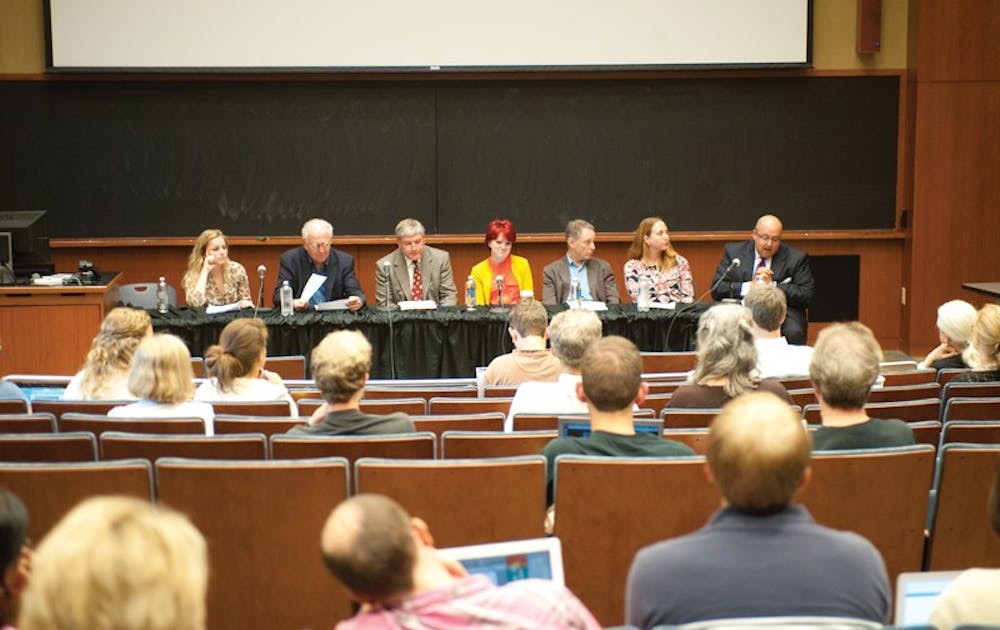Community representatives invested in the events that occurred during the summer around University President Teresa Sullivan’s forced resignation sat in front of an eager audience Wednesday afternoon. They met to learn from June’s events, to discuss the challenges facing the University and to understand how the community can respond to the ever-growing obstacles in higher education.
The event in Nau Hall titled “The June Events and After: The Future of the University” brought together five University faculty members and two students, who together represented the Faculty Senate, the Board of Visitors, faculty and students both graduate and undergraduate.
Without a reform of the Board to make it more reflective of the University community, progress will be difficult, said Economics Prof. David Breneman, the former dean of the Curry School. Currently all Board members are appointed by the governor, but Breneman said that doesn’t allow for a balanced Board. He suggested the Board have one or two academic members from other institutions.
“Other groups that have a stake in the University should be represented on the Board of Visitors,” he said.
Some groups may have too much of a stake in the University, said Media Studies Chair Siva Vaidhyanathan. With reduced state funding for the University comes increased dependence on private donations, he observed.
“Wealthy philanthropists tend to have very small outlooks,” Anthropology Prof. Richard Handler said. “We aren’t supposed to say that, but that is what is happening.”
Declining state appropriations also threaten programs like the University’s financial aid system, AccessUVa. And it’s not just financial aid that suffers when budgets are slashed. Faculty members at Wednesday’s panel expressed fears that a University education could begin to mean less and less.
“We need more faculty teaching at the undergraduate level,” Handler said. “In the College our student-to-faculty ratio has gotten worse over the past few years.”
At the culmination of the panelists’ back-and-forth discussion, one message stood out as the take-away for the University community. Without the political action witnessed in June, the University this semester could have looked very different.
“Reinstating President Sullivan was the right and best decision,” said fourth-year College student Hillary Hurd, the nonvoting student member of the Board. “There’s a potential — a palpable, exciting potential — that comes with a burning platform, and that burning platform is ours.”







